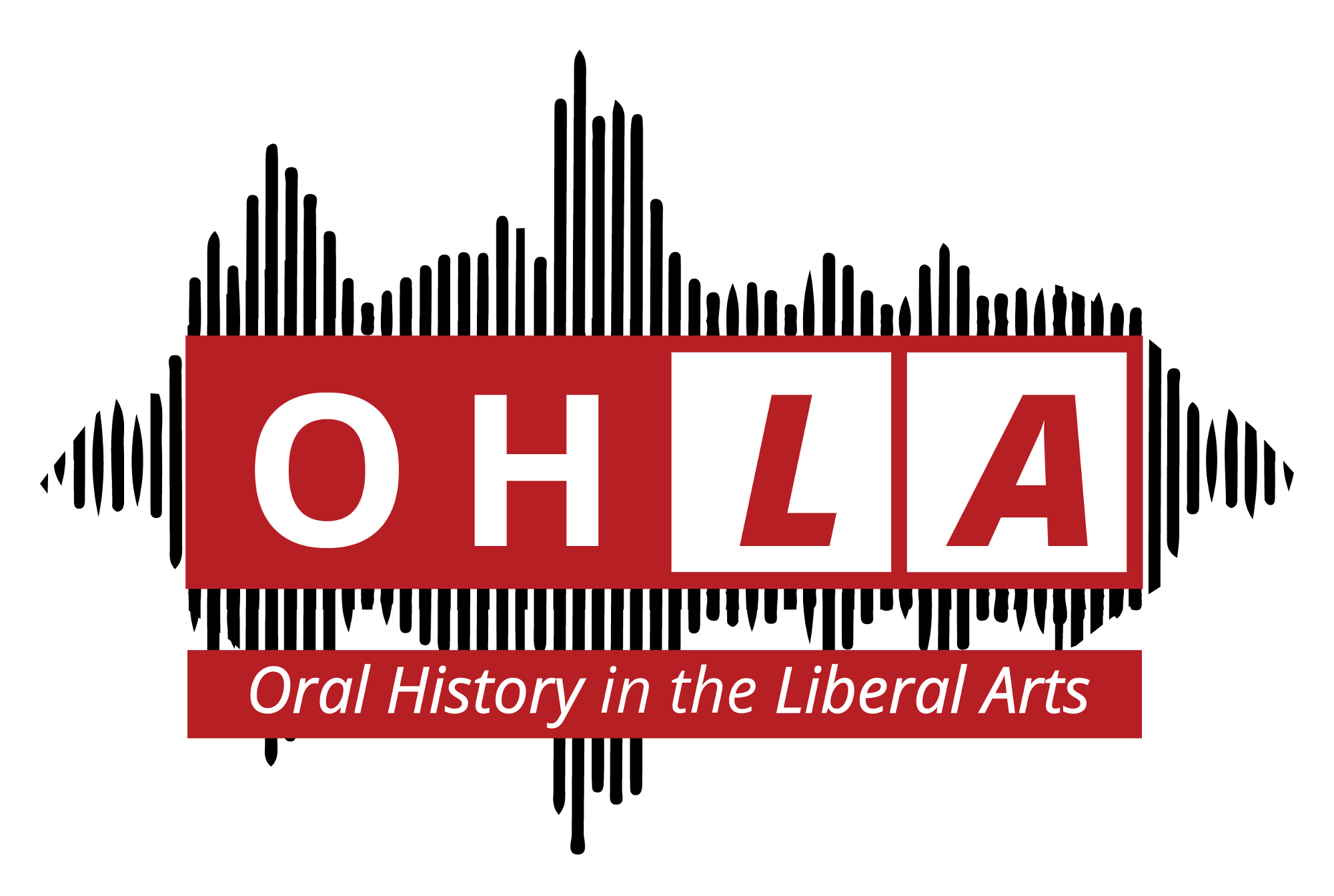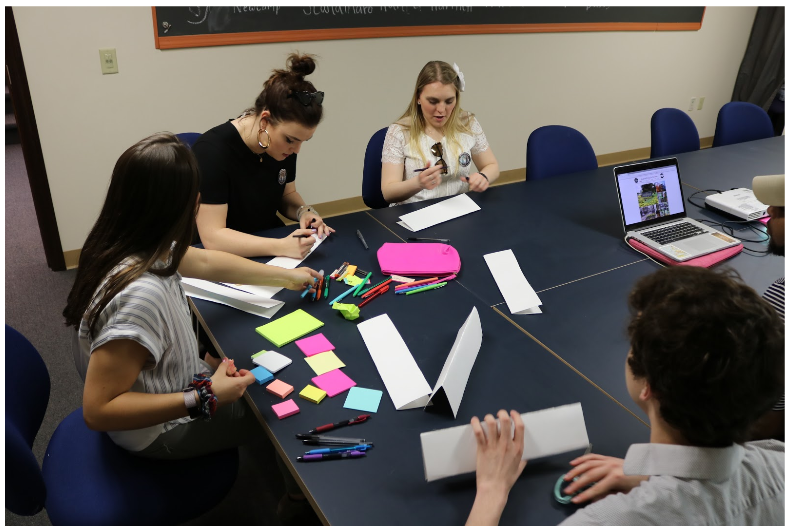In a post I wrote last year, “Research, Contingency, and the Undergraduate Classroom,” I discussed strategies for managing the unique ethos of a research-driven oral history class, an undertaking that requires students to be flexible and manage their expectations regarding the often uneven and uncertain process of developing an oral history based project.
Beyond encouraging students to remain open to unexpected research findings, stay flexible with regard to the trajectory of the project, and take initiative in order to bring it all together, this podcasting and website class also invites students to imagine and propose various components of the project. In the past two years, students have proposed and produced a mix tape of community music, a series of community members’ portraits, a vlog about local food and entertainment, a timeline of local industry, and much, much more. It’s been inspiring to watch students envision new ideas, and the sense of ownership they have over the work is vital.
But structuring a class around student-proposed ideas inevitably means that some students go far above and beyond while others do the bare minimum. And without defining “above and beyond” and “the bare minimum,” it is difficult, come grading season, to distinguish between the two. So, I’ve been thinking about ways to offer structured expectations without squashing creativity.
In my class, students must do a number of assignments, including a “supplemental project” that fulfills the needs of the larger work. These projects generally provide content for the website or contribute to the event: they include multimedia stories, event planning, marketing, and more. Some students complete one large project, while others complete a host of smaller tasks. In future classes, I plan to assign each supplemental project a point value in order to help students to see more clearly how individual projects stack up. Students will be required to satisfactorily complete a designated number of points to earn an A on their supplemental projects. I may also offer a list of potential projects, which might look something like this:
- Multimedia web story (~750 words) about one aspect of Meadville: 10 points
- Event marketing brochure: 5 points
- Event coordinating committee: 10 points
- Podcast transition music: 5 points
- Provide event materials (food, craft materials, etc.): 2 points each
- Manage project Facebook group: 5 points
Students can pick and choose ways to contribute, earning points along the way. When they propose their own projects, I will assign points accordingly. I hope that this plan will offer more grading transparency at semester’s end.




